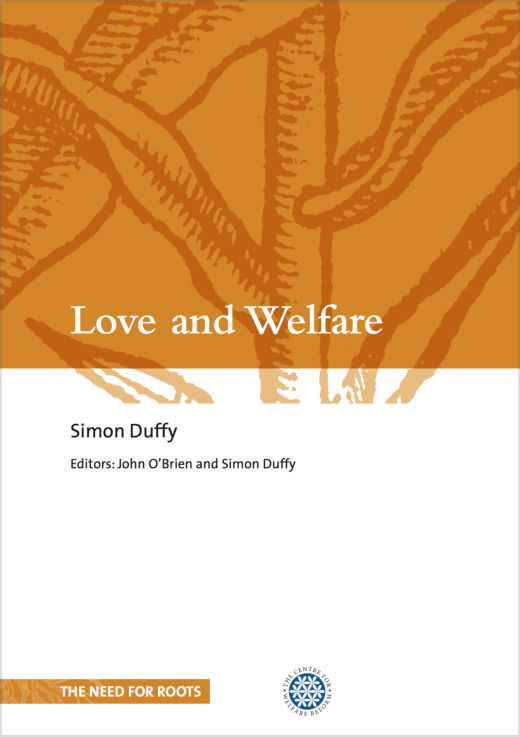There is a spiritual tradition that has been forgotten, which offers us a more positive vision of the welfare state.
Author: Simon Duffy
Is the welfare state a good idea - but badly designed? In the latest in our series of philosophical reflections on the welfare state - The Need for Roots - Simon Duffy argues that there is a spiritual tradition that has been forgotten, and which offers us a much more positive and loveable vision of the welfare state we need.
The modern welfare state was designed in a way that brings with it deep and ongoing problems. It is:
This kind of welfare state is unloveable. But this creates an enormous problem, because we really need the welfare state. It is no accident that we created the welfare state and it is no answer to dismantle it. The challenge is to redesign it and to redesign it so that it is much more loveable.
In fact the man who named the welfare state the 'welfare state' was Archbishop William Temple and he had a very different vision of the kind of welfare state we really need. Temple's vision put love at the centre of welfare, but this vision has played no part in how the welfare state was actually designed. But if we return to his ideas, and to the ideas of other thinkers, then we can discover a much more loveable version of the welfare state.
A loveable version of the welfare state is one that is:
In this densely argued essay Simon Duffy tries to reveal this vision be examining the work of Temple and exploring other fruitful traditions. In a secular age this vision may seem irrelevant, but he argues that it speaks to an image of ourselves, and of the people we really want to be, that is still relevant today and which can speak to people of every faith and of none.
Read and download the pdf in your browser, link below.

The publisher is the Centre for Welfare Reform.
Love and Welfare © Simon Duffy 2016.
All Rights Reserved. No part of this paper may be reproduced in any form without permission from the publisher except for the quotation of brief passages in reviews.
disability, faith & creativity, Need for Roots, England, Paper